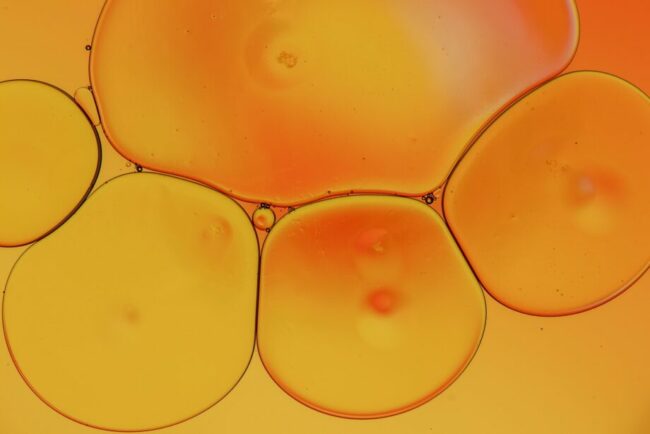When describing two people that don’t get along, you may have heard the phrase “those two mixes like oil and water.” Perhaps you’ve also spotted glistening oil floating on the surface of puddles of water after it rains. Of course, in all circumstances, you know that water and oil do not mix well—but have you ever wondered why? Why can’t oil dissolve in water like so many other things?
What feature of oil causes it to float on water?
Because oil is less thick than water, it floats on it. It would have sunk if it had been denser than water, such as iron. Density is defined as mass per unit volume. It indicates that a cubic centimeter (cc) of oil has a substantially lower mass than a cubic centimeter (cc) of water. It can also be described via the buoyant force notion.

Force of Buoyancy
When oil is submerged in water, the buoyant force equals the weight of the water displaced by the oil. When oil is submerged in water, the buoyant force is substantially greater than the oil’s weight. As a result, it floats.
Assume you wish to dissolve 5 cc of oil in 5 cc of water. When the oil is added to water, it displaces 5 cc of water. The weight of that volume of water is now substantially more than that of the same volume of oil. As a result, the buoyant force exceeds the weight of the oil. As a result, oil floats on top of the water.
Why Do Oil and Water Not Mix?
When dissolving one liquid in another, keep the rule of like dissolves like in mind. But oil and water are not the same. Water molecules have polarity. They are drawn to one another by the intermolecular attraction of hydrogen bonding (the bond that is formed when a water molecule’s slightly negative oxygen side is attracted to another water molecule’s slightly positive hydrogen side).
On the other hand, oil molecules are non-polar and less attracted to water molecules because they are hydrophobic (fear of water). The idea of dipole moment aids in our comprehension.
Moment of Dipole
A dipole can be compared to a magnet. It has a positively and negatively charged end, similar to a magnet’s north and south poles. The dipole moment or dipole strength is defined as the product of the magnitudes of the two charges and the distance between them. To mix, the dipole moments of the two liquids must be comparable.
Dipoles with comparable strengths dissolve faster with each other than dipoles with differing strengths. However, because the dipole moments of oil (and other hydrocarbon-based liquids) and water differ greatly, they do not dissolve in each other.
Advantages
Detergents use this characteristic of oil to clean oily garments and dishes.
This is because detergents are drawn to both oil and water. As a result, the detergents have a hydrophilic (or water-loving) side that binds with water and a hydrophobic (or oil-binding) side that binds with oil. This results in an emulsion, which is nothing more than a stable mixture of two or more liquids that would not typically mix. As a result, the detergent attracts dirt and grime and washes it away with the water.
These characteristic benefits animals that live in seas or bodies of water.
In the winter, the oil in their coats and feathers protects them from the chilly water.
Because saline water is denser than freshwater, oil floats on its surface. This behavior may be observed with maize, cooking, crude, etc.
If we put ice in oil in a container, it will float.
This is because it is less dense than oil. However, it will sink to the bottom when it gradually melts into water.
Which is denser, water or oil?
Only water molecules are attracted to other water molecules. Only other oil molecules are attracted to other oil molecules.
Because water is denser (heavier) than oil, they cannot combine. As a result, oil floats on the surface of the water.

Editorial Staff
Our writers, editors, content managers, and SEO specialist. We all take part in crafting amazing articles. We spend hours ensuring that each article is based on facts, researched, and thorough. You'll never want to click the back button to look for more answers other than here!
